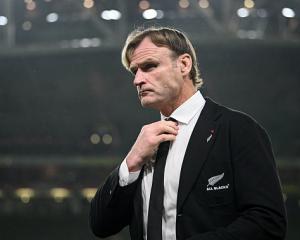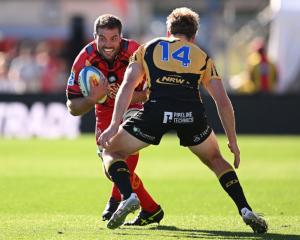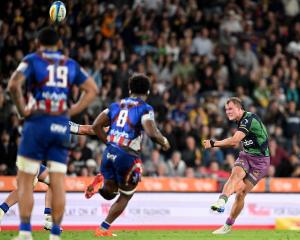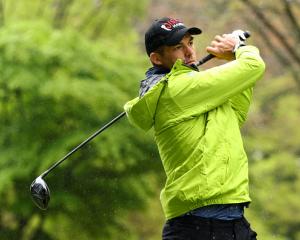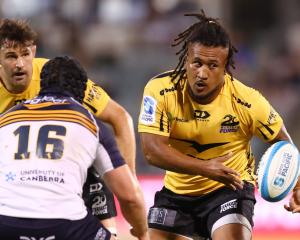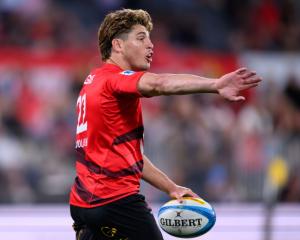
Hammett is a month into his new role as director of high performance and well-being at St Thomas of Canterbury College, a position that dovetailed nicely with the end of his tenure as an assistant coach at the Highlanders after Super Rugby Aotearoa.
The 29-test All Blacks hooker has placed coaching on the back burner to focus on another team-building exercise at the school he attended from 1984 to 1989.
Hammett, 48, was sounded out by principal Steve Hart last year and when he joined the school he was delighted to discover two former teachers, Margaret Guerin and Maureen Gaffaney, were still on staff.
“They both taught me English. I still have to send anything I write to them to correct it grammatically, so nothing’s really changed,” he laughed.
On a serious note, Hammett emphasised the school’s first XV was not his core role, former Crusaders teammate Johnny Leo’o is head of rugby and coaches alongside Dan O’Brien.
“I told Steve I don’t want to be here as a first XV coach, I wanted it to be a lot wider than that.”
Hammett, a self-confessed ‘late learner’, developed an interest in teaching during the twilight of a playing career that ended after the 2003 World Cup.
“In my last two or three years at the Crusaders I had some really great experiences teaching modules in primary schools and (Rolleston) prison,” he said.
“You could do modules around nutrition and anti-bullying. There were opportunities to go into prisons and run some drills for the guys there. That’s what sparked my passion. It’s something I sort of fell in love with.”
Teachers' college beckoned until career coach Robbie Deans intervened.
“I thought I’d end up being a teacher post-rugby then Deansy got hold of me and the rest is history,” he said.
Hammett joined the Crusaders coaching staff as forwards coach in 2006. He then became an assistant under Deans and his successor Todd Blackadder between 2007-10.
Stints at the Hurricanes, Cardiff, Sunwolves and Japan followed before Hammett returned home to assist at Tasman and the Highlanders.
Although he does not have any formal teaching qualifications, Hammett believes 20 years in a high performance rugby environment as a player then coach means the transition should be relatively smooth.
“Coaching is teaching,” Hammett argued.
“I suppose my qualifications have come through all the teams I’ve led. I’ve been lucky enough to be a head coach and an assistant coach. The rugby world we live in is quite high-pressured and demands a professional attitude.
“I’m working really closely with Steve and the leadership team. When people hear my name they think it’ll be about an involvement in rugby ... 70-80 per cent of my role is around the culture of the school.”

“For quite some time I’ve been really keen to bring someone into our school who’s outside of the education sector, just to bring a different perspective to the way we operate, especially around the culture and the vision we have and bringing that to life,” he said.
“Mark’s whole working life has been around high performing groups of adults, and how they work together. Sure rugby has been the main focus but his main goal has been getting groups of adults to work really effectively together.”
And while Hammett has a wide brief with the staff and students, inevitably he will spend time with the sports department.
“I’ve often thought our coaches do an amazing job, they give up so much of their own time, I’ve often wondered how we can give back to them and help them to grow as coaches. This is a great opportunity,” Hart said.
Quizzed about his own coaching future, Hammett, didn’t quite produce a trademark fend.
“I’d never say never. Would I get back into it? Maybe.”





